When you want to showcase your skills and professional expertise, saying “I have a lot of experience” can feel too common or repetitive. Expressing your career accomplishments, hands-on experience, and industry knowledge in different ways can make your message more impactful and memorable.
Whether you are writing a resume, preparing for a job interview, or introducing yourself to a new team or client, choosing the right words can highlight your competence, proficiency, and practical expertise without sounding generic.
Using alternative phrases allows you to emphasize your professional journey, real-world experience, and career depth in a more confident and polished way. From seasoned professional to well-versed in a particular field, these variations help convey your expertise, leadership experience, and technical knowledge clearly.
By exploring these options, you can communicate your capabilities and specialized skills with precision, leaving a strong impression on employers, colleagues, or collaborators.
What Does “I Have a Lot of Experience” Mean?
The phrase “I have a lot of experience” means that you have extensive knowledge, skills, and exposure in a specific area due to time, practice, or previous work. It communicates expertise, confidence, and capability—a way to show that you’ve been there, learned, and grown.
Is It Professional/Polite to Say “I Have a Lot of Experience”?
Yes, it’s professional and polite to say this phrase, especially in formal or career-related settings. However, it can sometimes sound generic or boastful if used without context. Replacing it with more descriptive or emotionally intelligent expressions can make your message feel warmer, humbler, and more engaging.
Synonyms “I Have a Lot of Experience”
- I’m Well-Versed In
- I Have a Strong Background In
- I’ve Developed Deep Expertise In
- I’m Experienced In
- I’ve Been Involved With
- I Have Hands-On Experience In
- I’ve Spent Years Working On
- I’ve Gained Valuable Insight Into
- I’ve Built a Solid Foundation In
- I’ve Had the Privilege of Working With
- I’m Skilled In
- I’ve Accumulated Extensive Experience In
- I’m Proficient In
- I’ve Been Dedicated To
- I’ve Sharpened My Skills In
- I’m Seasoned In
- I’ve Had Significant Exposure To
- I’m Knowledgeable About
- I’ve Been Immersed In
- I’ve Honed My Expertise In
1. I’m Well-Versed In
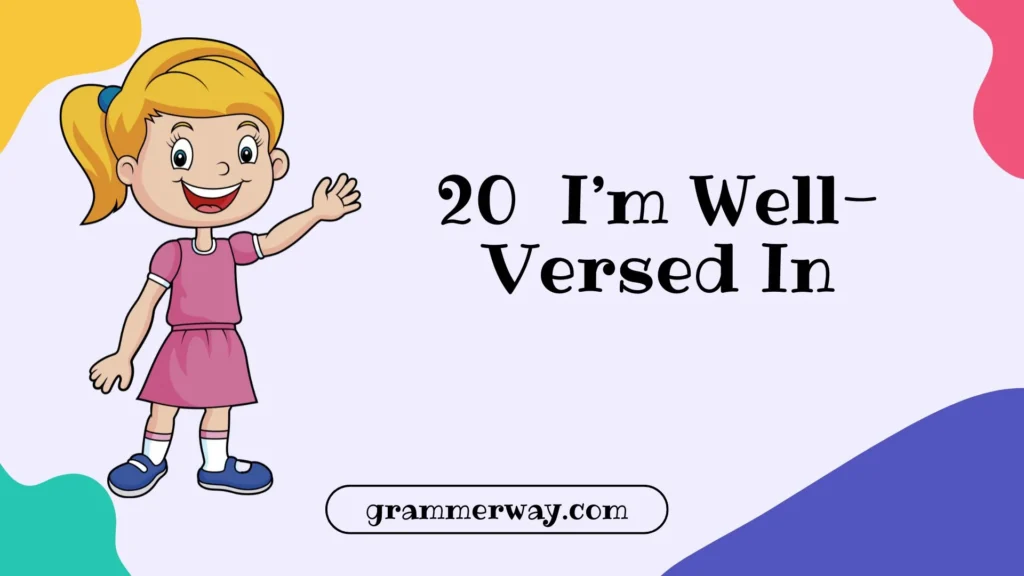
Meaning: Having deep understanding and familiarity with a topic through study, practice, or experience.
Scenario: Used in professional introductions or resumes to show mastery in a skill or field.
Examples:
- I’m well-versed in digital marketing strategies.
- She’s well-versed in project management tools.
- I’m well-versed in handling complex negotiations.
- He’s well-versed in data analytics and insights.
- We’re well-versed in customer communication.
Tone: Professional, confident, and polished.
Explanation: This phrase adds a refined, mature tone—it suggests expert-level comfort with a subject, without sounding arrogant.
2. I Have a Strong Background In
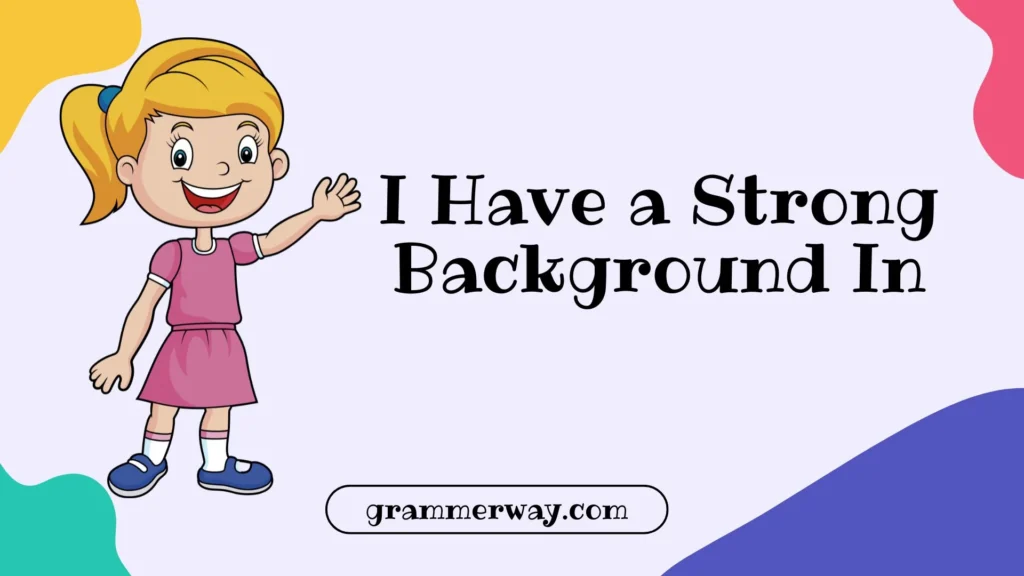
Meaning: Possessing solid professional history or education in a specific area.
Scenario: Perfect for cover letters or interviews when connecting past experience to a new role.
Examples:
- I have a strong background in finance and risk management.
- She has a strong background in education and leadership.
- My background in marketing supports this role well.
- He has a strong background in IT infrastructure.
- I bring a strong background in customer service.
Tone: Polite, formal, and confident.
Explanation: It presents you as credible and capable, showing long-term commitment and relevant knowledge.
3. I’ve Developed Deep Expertise In
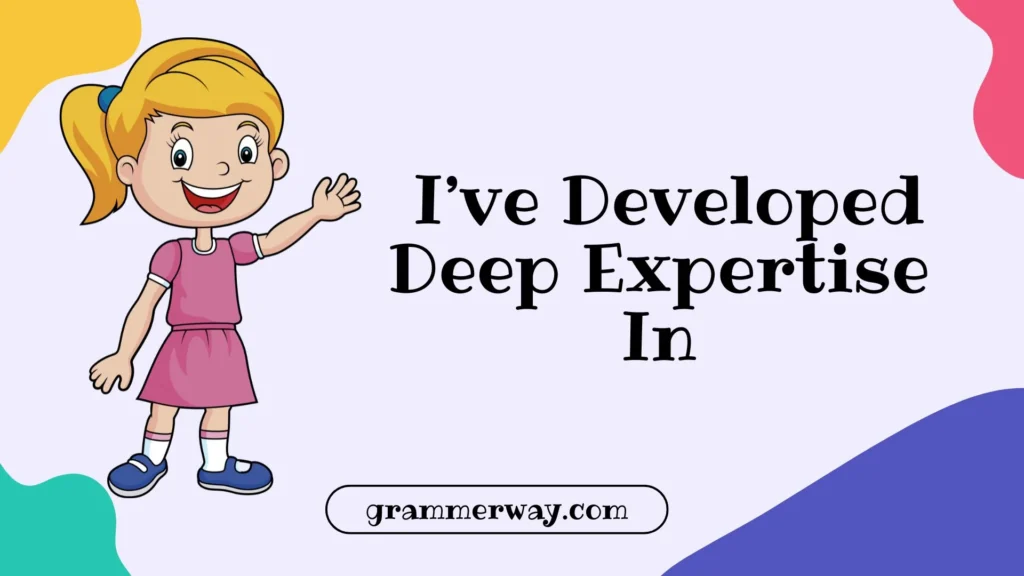
Meaning: Gained in-depth, specialized knowledge through years of focused work.
Scenario: Used in formal discussions, emphasizing expert-level skills.
Examples:
- I’ve developed deep expertise in brand strategy.
- She’s developed deep expertise in cybersecurity.
- Over the years, I’ve developed deep expertise in leadership training.
- He’s developed deep expertise in software design.
- I’ve developed deep expertise in content development.
Tone: Mature, confident, and professional.
Explanation: It conveys mastery and depth, while sounding humble and factual rather than boastful.
4. I’m Experienced In
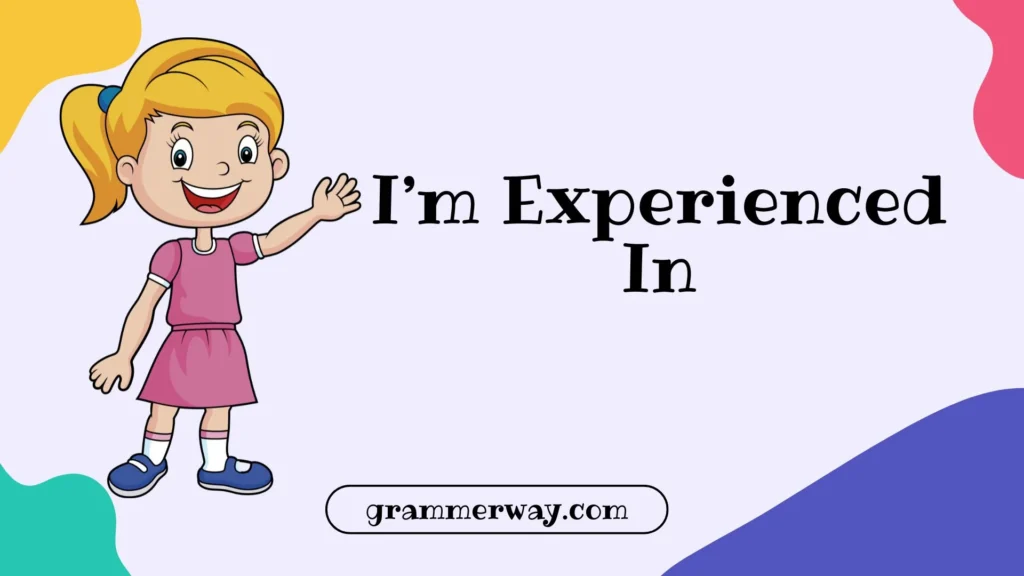
Meaning: Having practical experience and knowledge gained from doing something over time.
Scenario: Commonly used in resumes, profiles, and introductions.
Examples:
- I’m experienced in team leadership.
- She’s experienced in managing high-pressure projects.
- I’m experienced in communication and client relations.
- He’s experienced in software development.
- I’m experienced in planning and coordination.
Tone: Clear, confident, and professional.
Explanation: It’s simple and strong—a go-to alternative that’s flexible for all professional tones.
5. I’ve Been Involved With
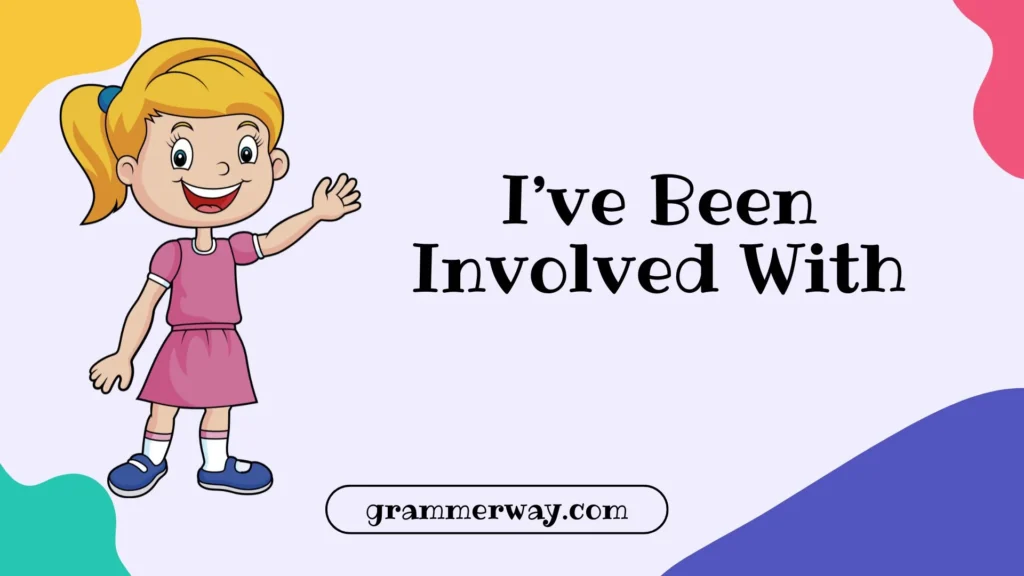
Meaning: Participated or contributed actively to projects, teams, or tasks.
Scenario: Used when describing collaborative or multi-role experiences.
Examples:
- I’ve been involved with several startup initiatives.
- She’s been involved with community-based programs.
- I’ve been involved with developing marketing campaigns.
- He’s been involved with business strategy meetings.
- We’ve been involved with multiple research projects.
Tone: Humble, cooperative, and flexible.
Explanation: It highlights teamwork and contribution, making you sound approachable and engaged.
6. I Have Hands-On Experience In

Meaning: Practical, real-world experience directly related to doing the work.
Scenario: Used when you’ve actively participated in projects or field tasks.
Examples:
- I have hands-on experience in event management.
- She has hands-on experience in UX design.
- I have hands-on experience in troubleshooting hardware issues.
- He has hands-on experience in marketing automation.
- I have hands-on experience in financial analysis.
Tone: Direct, realistic, and credible.
Explanation: This phrase stresses practical ability, showing you’ve done the work, not just studied it.
7. I’ve Spent Years Working On
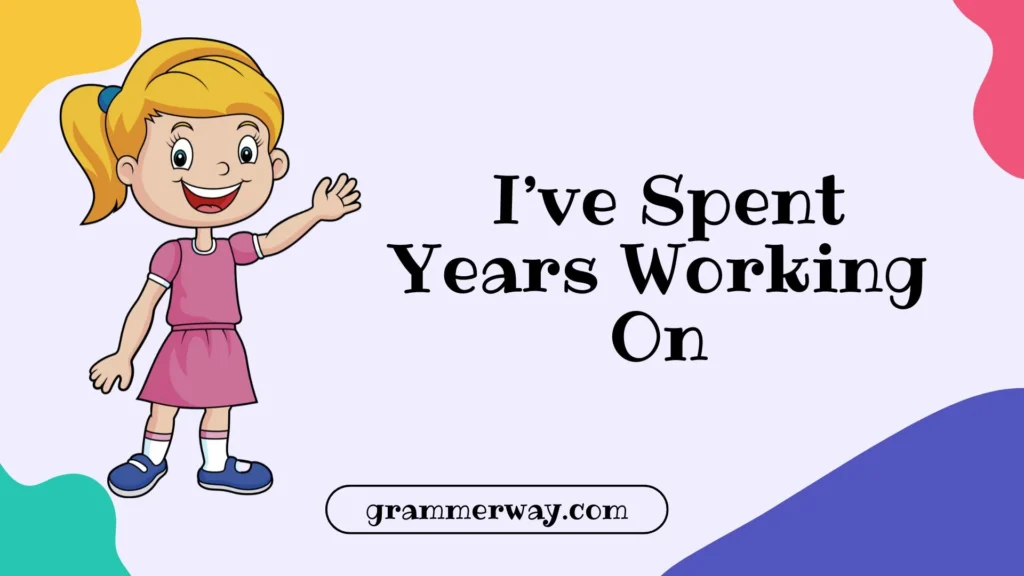
Meaning: Indicates long-term dedication and consistent effort in a specific field or skill.
Scenario: Used in introductions or portfolio summaries to show depth of experience.
Examples:
- I’ve spent years working on community development.
- She’s spent years working on digital campaigns.
- I’ve spent years working on improving client retention.
- He’s spent years working on team productivity.
- We’ve spent years working on educational programs.
Tone: Honest, grounded, and reflective.
Explanation: It conveys commitment and consistency, showing long-term passion for your craft.
8. I’ve Gained Valuable Insight Into

Meaning: Developed understanding and perspective from professional experience.
Scenario: Best for describing what you’ve learned or observed through your career.
Examples:
- I’ve gained valuable insight into customer behavior.
- She’s gained valuable insight into leadership challenges.
- I’ve gained valuable insight into user experience design.
- He’s gained valuable insight into managing global teams.
- We’ve gained valuable insight into client needs.
Tone: Thoughtful, humble, and mature.
Explanation: It emphasizes learning and growth, showing reflection instead of self-promotion.
9. I’ve Built a Solid Foundation In
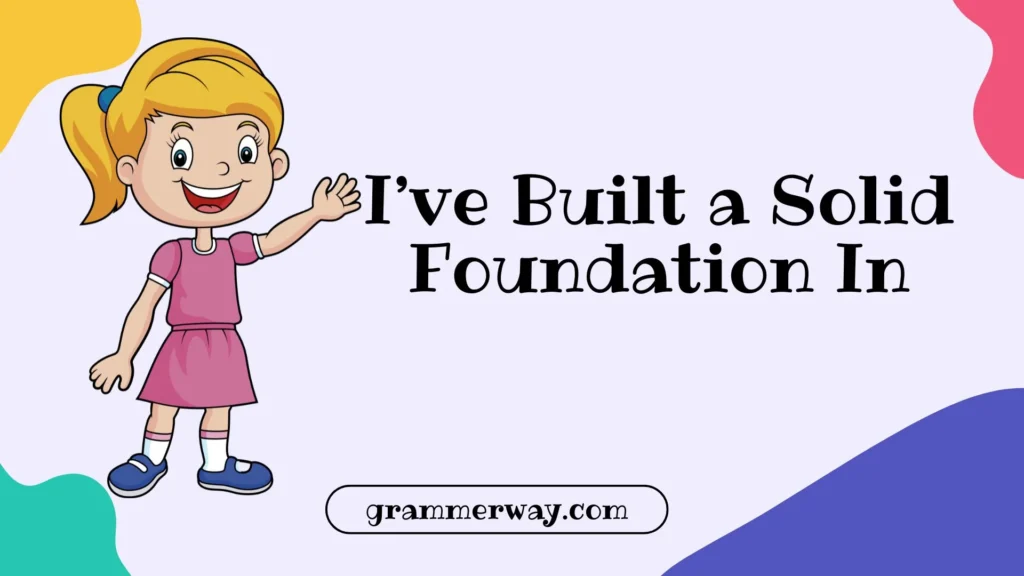
Meaning: Acquired core skills and understanding essential to a field.
Scenario: Used early in a career or when describing progressive expertise.
Examples:
- I’ve built a solid foundation in communication and branding.
- She’s built a solid foundation in HR management.
- I’ve built a solid foundation in data analysis.
- He’s built a solid foundation in leadership.
- We’ve built a solid foundation in software engineering.
Tone: Modest, confident, and clear.
Explanation: It’s perfect when you want to show competence without overstating, keeping your tone balanced and professional.
10. I’ve Had the Privilege of Working With
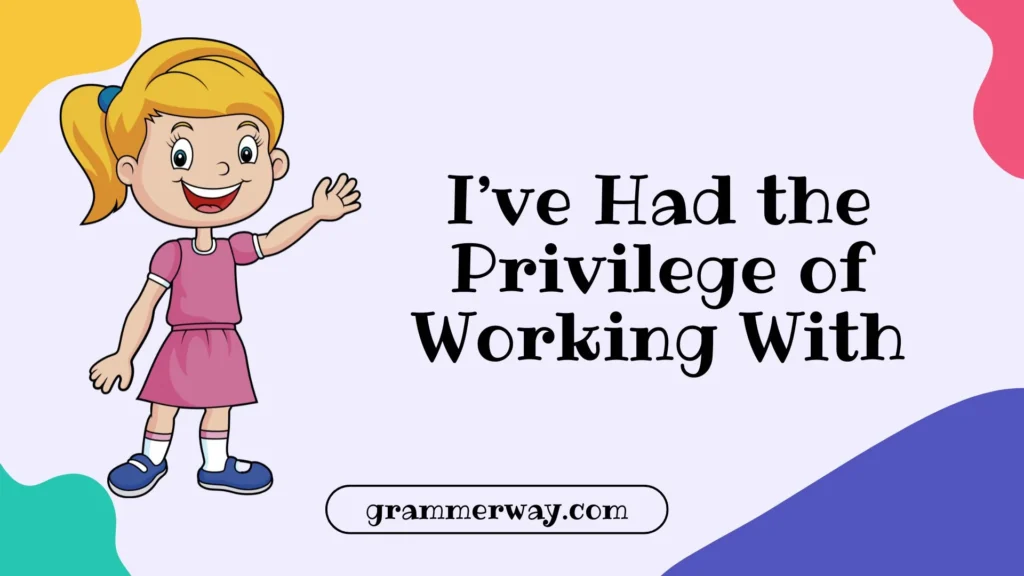
Meaning: Expressing gratitude and respect for professional collaborations and experiences.
Scenario: Used to show humility and appreciation for people or companies you’ve worked with.
Examples:
- I’ve had the privilege of working with diverse teams.
- I’ve had the privilege of working with top industry leaders.
- She’s had the privilege of working with innovative startups.
- I’ve had the privilege of working with inspiring mentors.
- We’ve had the privilege of working with great clients.
Tone: Grateful, respectful, and human.
Explanation: This phrase adds warmth and humility, making your experience sound collaborative and appreciative.
11. I’m Skilled In
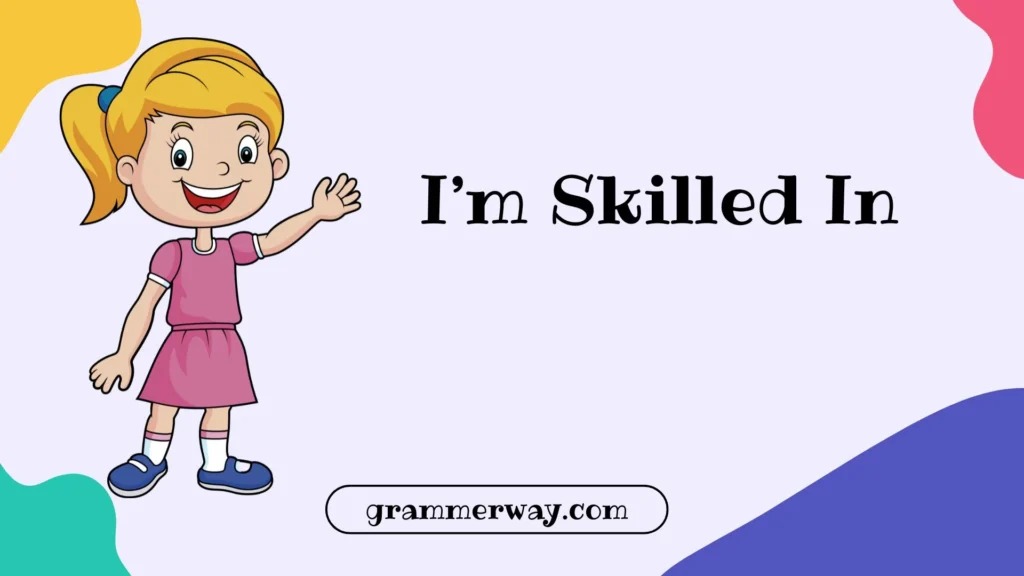
Meaning: This phrase shows that you have developed a strong and reliable ability in a certain area, often through time, training, or practice. Being “skilled” means you’re not just familiar with something—you’ve reached a level of proficiency and confidence that allows you to perform tasks effectively and consistently.
Scenario: You can use this in both formal and casual professional contexts, such as during interviews, introductions, or while describing your competencies on a resume. It’s a humble yet confident way to showcase your capabilities without overclaiming.
Examples:
- I’m skilled in team leadership and conflict resolution.
- She’s skilled in handling customer communication with empathy.
- I’m skilled in planning and executing digital marketing campaigns.
- He’s skilled in training and developing junior staff members.
- I’m skilled in using data to support business decisions.
Tone: Balanced, confident, and clear.
Explanation: This phrase conveys trustworthiness and competence. It’s short, but it leaves a strong impression of ability and confidence without sounding boastful. It tells others that your skills are tried, tested, and reliable, giving them faith in your professionalism.
12. I’ve Accumulated Extensive Experience In

Meaning: This means you have gathered a wide range of experience over a long period of time. It emphasizes consistency, time, and diversity of exposure. The word “accumulated” suggests a gradual build-up of wisdom and practical knowledge from different roles, projects, or challenges.
Scenario: Use this when you want to highlight your career growth or the breadth of your experience across multiple areas. It’s ideal for formal settings like interviews, presentations, or executive bios.
Examples:
- I’ve accumulated extensive experience in managing cross-functional teams.
- Over the years, I’ve accumulated extensive experience in content strategy and branding.
- She’s accumulated extensive experience in organizational leadership.
- I’ve accumulated extensive experience in analyzing business performance.
- He’s accumulated extensive experience in developing training programs.
Tone: Professional, formal, and mature.
Explanation: This phrase demonstrates depth and longevity, suggesting you’ve grown steadily and seen various sides of your industry. It conveys a sense of credibility and wisdom, showing that your knowledge comes from real, long-term involvement, not just theory.
13. I’m Proficient In
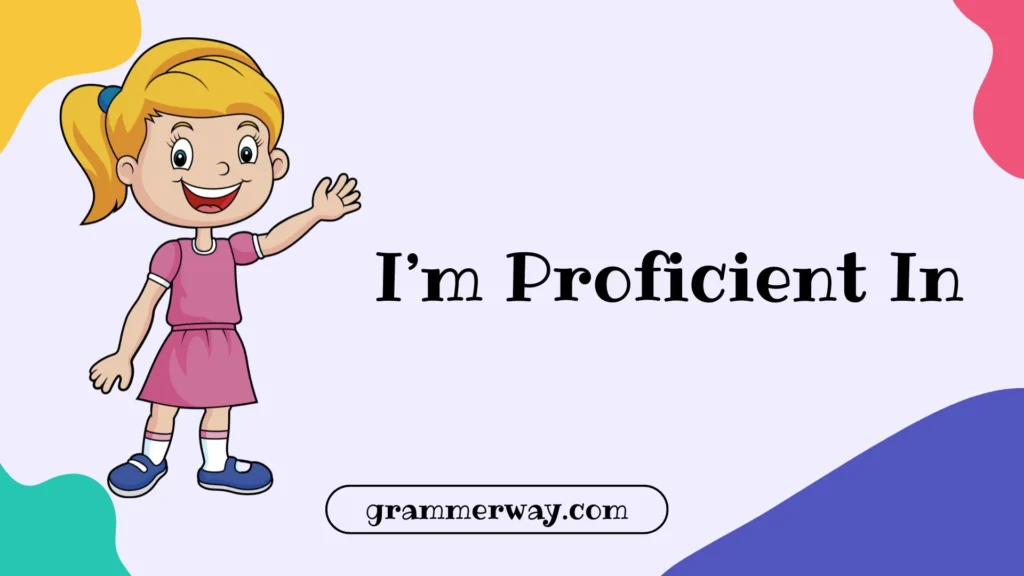
Meaning: Being proficient means you’ve reached a high level of skill and accuracy in something—enough to perform tasks efficiently and confidently. It often refers to technical, practical, or language skills.
Scenario: This phrase is best used when you want to show competence with tools, techniques, or systems—especially in resumes, professional bios, or formal conversations.
Examples:
- I’m proficient in Microsoft Excel and data visualization tools.
- She’s proficient in graphic design and layout composition.
- I’m proficient in managing customer relationship software.
- He’s proficient in multiple programming languages.
- I’m proficient in preparing detailed financial reports.
Tone: Technical, professional, and concise.
Explanation: This phrase gives a sense of clarity and authority, showing that you have strong practical command over a specific skill. It’s straightforward and often used in formal documents or skill summaries, where confidence and precision matter most.
14. I’ve Been Dedicated To

Meaning: This phrase expresses commitment and long-term passion for a certain cause, role, or field. Being “dedicated” goes beyond having experience—it shows that your work has personal meaning and consistent effort behind it.
Scenario: Perfect for personal statements, interviews, or reflective writing, when you want to show both skill and emotional connection to your work.
Examples:
- I’ve been dedicated to improving education quality for children.
- She’s been dedicated to promoting environmental awareness.
- I’ve been dedicated to helping small businesses grow.
- He’s been dedicated to mentoring young professionals.
- I’ve been dedicated to developing community-based initiatives.
Tone: Passionate, emotional, and sincere.
Explanation: This phrase shows heart and purpose. It portrays you as someone who doesn’t just work for results but also for impact and meaning. It’s excellent for people-oriented or mission-driven careers, adding depth to your professional image.
15. I’ve Sharpened My Skills In
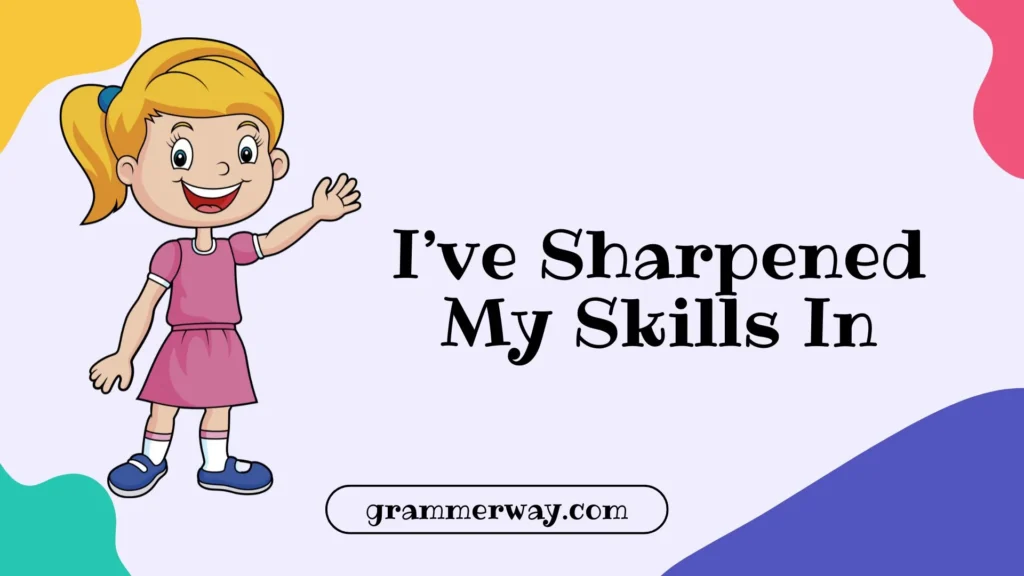
Meaning: It means you’ve actively improved and refined your abilities through consistent learning, feedback, and experience. The word “sharpened” gives the idea of polishing your craft until it becomes a precise and reliable strength.
Scenario: Use it when discussing growth and continuous improvement—especially when you want to show that you’ve learned from practice and time.
Examples:
- I’ve sharpened my skills in client communication and negotiation.
- Over time, I’ve sharpened my skills in leadership and problem-solving.
- I’ve sharpened my skills in creative storytelling.
- He’s sharpened his skills in project management and delivery.
- I’ve sharpened my skills in developing innovative solutions.
Tone: Reflective, confident, and growth-oriented.
Explanation: This phrase emphasizes development through effort. It shows that your abilities didn’t come overnight—you’ve worked hard to grow, learn, and evolve professionally. It carries both humility and determination.
16. I’m Seasoned In
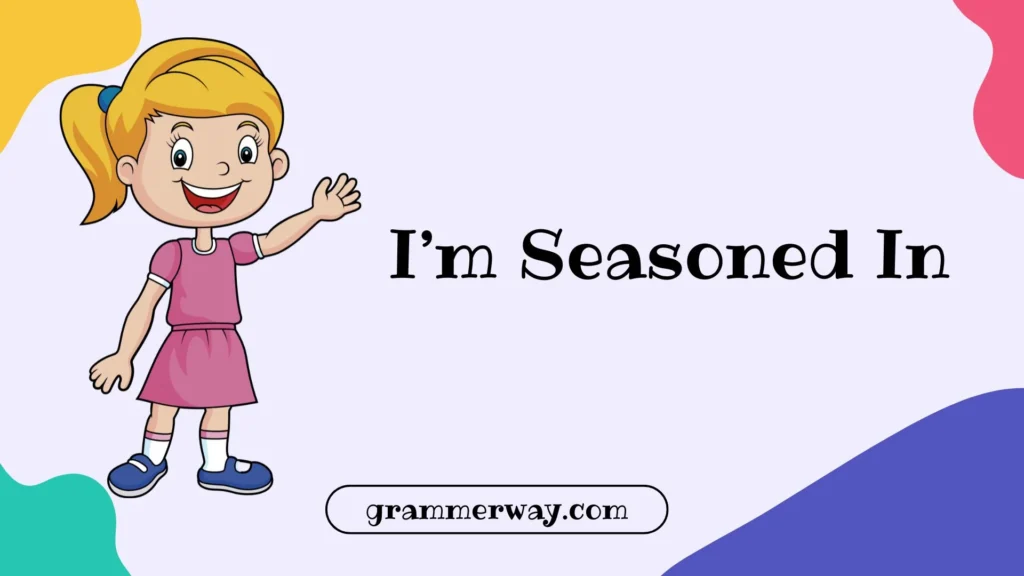
Meaning: This is a professional and elegant way to say that you are highly experienced and knowledgeable due to years of consistent exposure. Being “seasoned” means you’ve gone through challenges, learned lessons, and understand the practical realities of your field.
Scenario: Use this phrase in formal discussions, leadership bios, or interviews to highlight long-term expertise.
Examples:
- I’m a seasoned professional in human resource management.
- She’s seasoned in handling complex negotiations.
- I’m seasoned in managing international projects.
- He’s seasoned in leadership and business strategy.
- We’re seasoned in helping clients achieve measurable results.
Tone: Polished, mature, and authoritative.
Explanation: “Seasoned” carries a tone of wisdom, experience, and credibility. It paints you as someone who has learned through years of doing—not just studying—your craft. It’s a dignified way to express confidence.
17. I’ve Had Significant Exposure To

Meaning: This means you’ve experienced or observed key aspects of a particular field, environment, or process—enough to understand how things work at a deeper level.
Scenario: It’s often used in interviews or cover letters to describe indirect but valuable experience.
Examples:
- I’ve had significant exposure to international business operations.
- She’s had significant exposure to leadership and management roles.
- I’ve had significant exposure to different cultural work environments.
- He’s had significant exposure to financial decision-making.
- I’ve had significant exposure to project planning and execution.
Tone: Professional, reflective, and modest.
Explanation: This phrase shows you’ve gained meaningful insight through real involvement, even if not always as a lead. It communicates breadth and adaptability, especially useful when transitioning roles or industries.
18. I’m Knowledgeable About
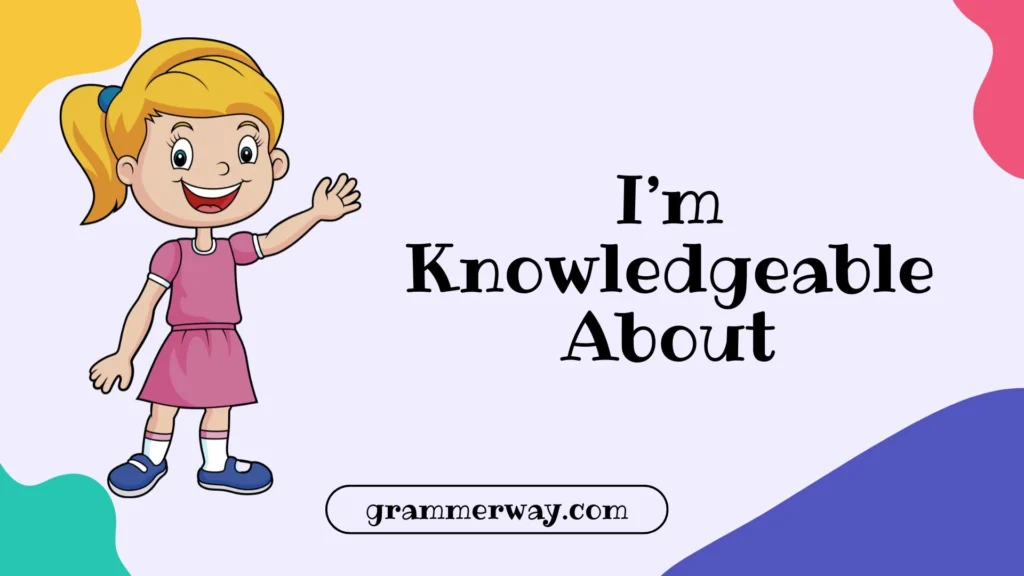
Meaning: Having clear understanding and reliable information about a specific subject or area. It highlights mental competence and awareness gained through study or experience.
Scenario: Ideal when you want to sound humble yet credible, especially in learning or consultative environments.
Examples:
- I’m knowledgeable about workplace productivity tools.
- She’s knowledgeable about customer engagement strategies.
- I’m knowledgeable about current market trends.
- He’s knowledgeable about data management systems.
- We’re knowledgeable about sustainable practices.
Tone: Friendly, grounded, and factual.
Explanation: This phrase is approachable and modest. It communicates confidence without sounding overly assertive, making it perfect for collaborative or team-focused conversations.
19. I’ve Been Immersed In

Meaning: This means you’ve been deeply involved or surrounded by a certain kind of work or environment for an extended time. “Immersed” adds a sense of passion and focus, showing that your experience goes beyond surface-level.
Scenario: It’s perfect for creative, research, or experiential professions, where passion and engagement matter.
Examples:
- I’ve been immersed in digital innovation for over a decade.
- She’s been immersed in education reform projects.
- I’ve been immersed in developing community-based initiatives.
- He’s been immersed in software product design.
- I’ve been immersed in storytelling and content creation.
Tone: Passionate, expressive, and engaging.
Explanation: It shows deep involvement and love for your work—you haven’t just worked in a field; you’ve lived and breathed it. It’s ideal for showing emotional connection alongside expertise.
20. I’ve Honed My Expertise In

Meaning: This means you’ve carefully refined your professional abilities through years of focused practice, feedback, and growth. “Honed” suggests precision and maturity—it’s about mastery achieved through dedication.
Scenario: Use it in formal or reflective settings to demonstrate continuous improvement and excellence.
Examples:
- I’ve honed my expertise in leadership development.
- She’s honed her expertise in public speaking.
- Over time, I’ve honed my expertise in business growth strategies.
- He’s honed his expertise in risk assessment.
- I’ve honed my expertise in building high-performing teams.
Tone: Elegant, professional, and confident.
Explanation: It conveys refinement, maturity, and consistent self-improvement. You’re not just experienced—you’re deliberately better, someone who values learning and excellence in every step of your career.
Conclusion
Finding new ways to say “I have a lot of experience” helps you communicate with authenticity, warmth, and confidence. Each alternative carries its own emotional tone—some sound formal and executive, while others feel humble and human. When you choose the right expression, you not only share your background—you also reveal your personality, growth, and care for your craft.
FAQs
1. What’s the best alternative for job interviews?
Try saying “I have a strong background in…” or “I’ve developed deep expertise in…” for a confident yet natural tone.
2. How can I sound confident without bragging?
Focus on your journey and growth. Phrases like “I’ve sharpened my skills” or “I’ve gained valuable insight” sound humble yet strong.
3. What’s the most formal version of this phrase?
Use “I’ve accumulated extensive experience in” or “I’m seasoned in” for a polished, professional sound.
4. What if I’m early in my career?
Say “I’ve built a solid foundation in…” or “I’ve gained valuable insight into…” to show progress and potential.
5. Which alternative works best in personal branding or portfolios?
Phrases like “I’ve honed my expertise in…” or “I’ve been immersed in…” feel more authentic and passionate.
Sophia Wilson is a content writer at GrammerWay, specializing in English grammar, writing clarity, and everyday language usage. She creates simple, practical guides to help readers write with confidence.

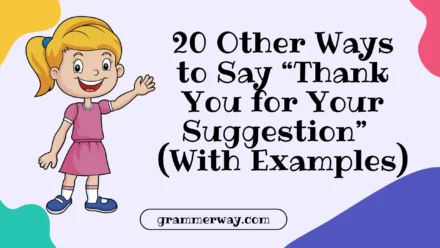
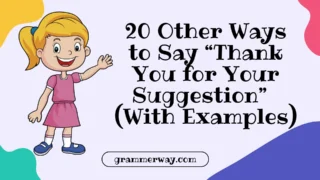
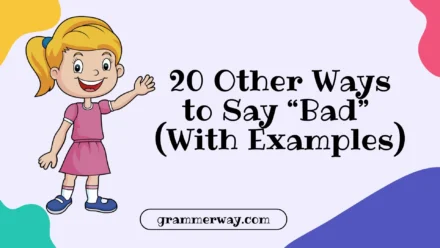
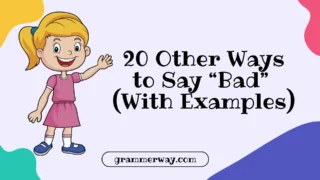
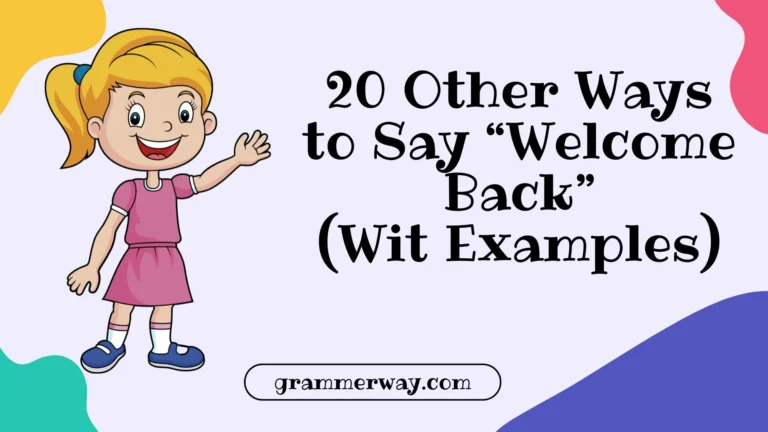
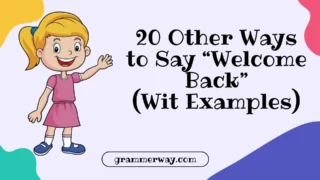
Leave a Comment